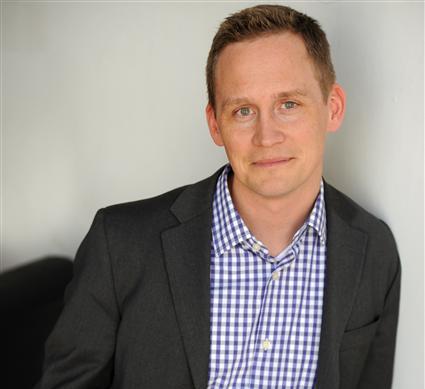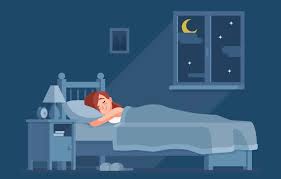Jun 29, 2021A Q&A with Dr. W. Christopher Winter, The ‘Sleep Whisperer’
Dr. W. Chris Winter, MD, has been dubbed “The Sleep Whisperer.”
His work as a board-certified neurologist and double board-certified sleep specialist based out of Charlottesville (VA) Neurology and Sleep Medicine has garnered the attention of professional and collegiate athletic programs looking to get an edge in any corner they can find.
Whether it’s been Major League teams like the Dodgers or Indians, or NBA teams like the Pacers or Wizards, to even the U.S. Women’s Soccer team, and 560 Division I-A college football players, Dr. Winter is sought after for the tangible difference he’s had on the success of these teams and players.
Following his undergrad studies at the University of Virginia, his medical degree at Emory College, and his sleep medicine fellowship at the University of North Carolina, Chapel Hill, Dr. Winter later went on to receive a grant from the MLB to study the effect of scheduling and time zone travel on team performance.
Training & Conditioning Magazine caught up with Dr. Winter to find out how to better improve our sleep performance.
Training & Conditioning: What drove you to study sleep? What is your favorite part about what you do?
 Dr. W. Christopher Winter: I started doing sleep research as an undergraduate to earn some spending money and maybe get a medical school recommendation. The field is full of the nicest and most helpful people on the planet, so I never left!
Dr. W. Christopher Winter: I started doing sleep research as an undergraduate to earn some spending money and maybe get a medical school recommendation. The field is full of the nicest and most helpful people on the planet, so I never left!
How easy or difficult do you find it to follow the practices you’ve established?
Hard as hell, so when I stay up late doing interviews for magazines, I simply choose to lie to people when they ask me if I always go to bed on time. It’s tough to be a disciplined sleeper. I’m working on this all of the time.
Is there such a thing as too much sleep for an athlete? How many hours would that be?
Probably, although I’m not sure the modern athlete has the time to sleep too much. Sleep need is a highly individualized thing. Probably like asking if a distance swimmer can eat too much! Yes, but that would be a load of pancakes!
What are your thoughts on napping for athletes? What is the most effective length for a nap, and how close should it be to a game and/or practice session?
I think napping is okay as a sleep supplement, not a sleep replacement. A nap is not a remedy for a poorly spent evening/night. If it’s 3 AM and you’re in a Waffle House, a nap is not a great long-term strategy.
What are some of the best ways for an athlete struggling with their sleep to improve it?
Consistent schedule, impeccable sleep hygiene, and bullet-proof bedtime mindset. You cannot go to bed fearing sleep (or sleeplessness). It’s like trying to be a great batter yet being scared of the ball hitting you. That fear needs to be conquered before greatness can happen.
How have you seen athletes evolve their sleeping patterns over the course of your career? Do teams practice sleep differently now than they did when you began?
1) Great sleep education. Knowing about sleep solves many issues.
2) Create a positive sleep culture within an organization. Athletes play a huge part in setting this tone.
3) Understand the strengths and weaknesses of the technology. The best MRI in the world cannot fix a blown ACL and the best sleep tracker in the world…
Yes, I think teams are absolutely placing a higher value on rest and recovery these days, I really like seeing members of the training staff acquiring knowledge related to sleep, and seeing them take over my job! They have a relationship with the players, so in many ways, they are better suited to be the sleep experts than some random sleep doc in Virginia.
 What role does travel play in an athlete’s ability to develop a stable sleeping pattern?
What role does travel play in an athlete’s ability to develop a stable sleeping pattern?
Not a positive one. Travel is very disruptive to a healthy sleep schedule and maximizing performance. It’s also a great potential for a competitive advantage if you can bend performance to coincide with varying competition times.
What else must an athlete do to ensure they perform to the best of their abilities in addition to sleep?
Sleep, hydrate appropriately, fuel properly, train and recover optimally and develop a resilient and adaptable mind.
What role do electronic devices (TV, smartphones, etc.) play in preventing effective sleep? What steps can be taken with said devices?
[It’s an] anxiety-inducing sleep barrier, but mobile check deposit is pretty handy.
Plug them up in your kitchen and read a book. In other words, get off your phone, get outside, do something else from time to time, particularly in the evening.
For a non-athlete, what advice would you have for someone looking to make basic steps to improve their sleep?
» ALSO SEE: Saliva-Based Concussion Tests: The Next Factor in Diagnosis?
Exercise and be more like an athlete. Exercise helps sleep tremendously. Avoid caffeine and alcohol at night. That helps a lot too. A consistent schedule around the clock (meal times, light exposure, exercise) is a must.
Anything else you’d like to add?
Buy my book The Sleep Solution, Why Your Sleep Is Broken and How To Fix It. It’s all about understanding and changing your sleep.
For more information from Dr. Winter, you can follow him on Twitter, @SportsSleepDoc. His upcoming book, The Rested Child: Why Your Tired, Wired, or Irritable Child May Have a Sleep Disorder–And How to Help is available for preorder and will be available on August 17, 2021.


